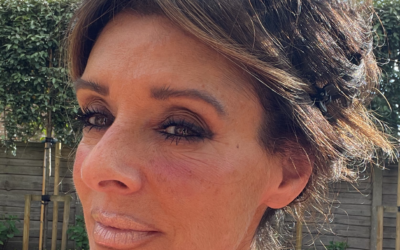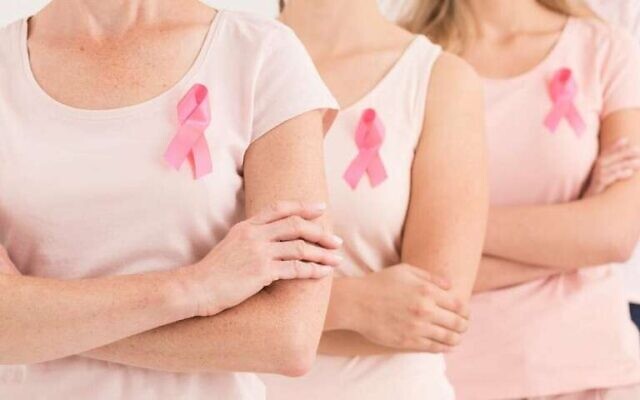New genetic breast cancer testing increases risk accuracy for Jewish women
Researchers in Manchester and Israel have used data from Ashkenazi Jewish populations to give more probable risk scores for those being tested
Researchers in the UK and Israel have developed a way to improve the accuracy of breast cancer genetic testing for women from Ashkenazi Jewish backgrounds.
New forms of genetic tests can tell women their personal risk of developing breast cancer, but studies show that there is a lack of accuracy for Black, Asian or Ashkenazi Jewish women, or women with a mixed ethnic background.
Researchers in Manchester and Israel have investigated how to improve breast cancer genetic tests for Ashkenazi Jewish women by looking for tiny genetic variations all humans carry – called Single Nucleotide Polymorphisms (SNPs).
Depending on the unique combination of them, SNPs can increase or decrease the risk of breast cancer. These generate a score, which tells a woman whether she has a low, average, or high risk of developing breast cancer in the next ten years.
However, the genetic data used to create these scores came from mainstream white European populations, meaning that the risk for Black, Asian or Ashkenazi Jewish women, or women with a mixed ethnic backgrounds was often exaggerated.
In findings published by Genetics in Medicine, the British and Israeli researchers showed that, after adjusting for Ashkenazi Jewish ancestry, they were able to generate more accurate predictions.
The work was carried out by teams from the University of Manchester, Manchester University NHS Foundation Trust, Carmel Medical Center in Israel, Technion-Israel Institute of Technology, Christie NHS Foundation Trust, and Queen Mary University of London.
Among those to Jewish women to have been told of the risk is Vicky Lee, 56, from Manchester. She grew up with a strong family history of female cancers and lost her mum to ovarian cancer aged just 47.

As genetic sequencing became available, she tested positive for the BRCA gene and opted for a preventative hysterectomy and later a bilateral mastectomy. She was a patient at Saint Mary’s, Withington and Wythenshawe Hospitals.
“Before I was tested, I’d decided that I would have preventative surgery if I was a BRCA carrier,” she said. “I’d watched my mum and other members of my family go through ovarian cancers and I knew I had to do everything in my power to prevent my own daughters from watching me fight the same disease.
“The ability to accurately test for gene fragments that might be the cause of family cancers is so important for allowing women to make informed choices about their future health.
“One size never fits all in medicine and medical advancements that allow women in specific communities to understand their own health picture properly are massively important.
“Preventative surgeries are significant procedures that no woman would undergo lightly. Accurate testing gives women the confidence to make these decisions based on precise insight and, conversely, allows other women to know with confidence that their risk score is low giving them freedom to go and live their lives.”
The research team used genetic information from Ashkenazi Jewish women in both Manchester and Israel, with data from studies in Greater Manchester, Northern Ireland, and a regional genetics database.
Prof. Gareth Evans, a consultant in medical genetics and cancer epidemiology who co-led the study, said Jewish women being told that they are at an exaggerated risk of breast cancer could suffer “undue stress or concern and unnecessary screening and preventative measures that they don’t need”.
He said future scores for Ashkenazi Jewish women “should be based on their genetic data to provide a more accurate risk prediction,” adding: “This study is an important step forward.”

Thank you for helping to make Jewish News the leading source of news and opinion for the UK Jewish community. Today we're asking for your invaluable help to continue putting our community first in everything we do.
For as little as £5 a month you can help sustain the vital work we do in celebrating and standing up for Jewish life in Britain.
Jewish News holds our community together and keeps us connected. Like a synagogue, it’s where people turn to feel part of something bigger. It also proudly shows the rest of Britain the vibrancy and rich culture of modern Jewish life.
You can make a quick and easy one-off or monthly contribution of £5, £10, £20 or any other sum you’re comfortable with.
100% of your donation will help us continue celebrating our community, in all its dynamic diversity...
Engaging
Being a community platform means so much more than producing a newspaper and website. One of our proudest roles is media partnering with our invaluable charities to amplify the outstanding work they do to help us all.
Celebrating
There’s no shortage of oys in the world but Jewish News takes every opportunity to celebrate the joys too, through projects like Night of Heroes, 40 Under 40 and other compelling countdowns that make the community kvell with pride.
Pioneering
In the first collaboration between media outlets from different faiths, Jewish News worked with British Muslim TV and Church Times to produce a list of young activists leading the way on interfaith understanding.
Campaigning
Royal Mail issued a stamp honouring Holocaust hero Sir Nicholas Winton after a Jewish News campaign attracted more than 100,000 backers. Jewish Newsalso produces special editions of the paper highlighting pressing issues including mental health and Holocaust remembrance.
Easy access
In an age when news is readily accessible, Jewish News provides high-quality content free online and offline, removing any financial barriers to connecting people.
Voice of our community to wider society
The Jewish News team regularly appears on TV, radio and on the pages of the national press to comment on stories about the Jewish community. Easy access to the paper on the streets of London also means Jewish News provides an invaluable window into the community for the country at large.
We hope you agree all this is worth preserving.
- News
- breast cancer
- ashkenazi jewish
- Jewish women
- university of manchester
- Manchester University NHS Foundation Trust
- Carmel Medical Center
- technion-israel institute of technology
- Christie NHS Foundation Trust
- Queen Mary University of London
- BRCA gene mutation
- Prof Gareth Evans
- preventative hysterectomy
- bilateral mastectomy






















